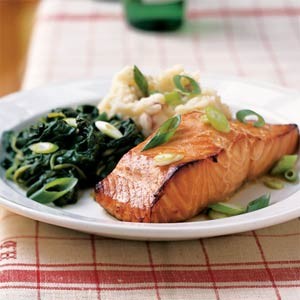Chronic Pain and Nutrition
Many people suffer with chronic pain and try the most obvious route, medication, to reduce discomfort. Medications can cause many side effects, such as: constipation, drowsiness, nausea, GI discomfort and brain fog. There are many other alternatives to medication, such as: physical therapy, acupuncture, magnetic therapy, yoga and herbal medicine to name a few. What most people do not consider is, the foods we eat can both help or inflame chronic pain. I will discuss some foods and supplements that you can add/remove to help with chronic pain and support your overall well being.
- Deep sea fatty fish such as salmon, herring, sardines and halibut have omega 3 fatty acid. Omega 3 fatty acid has been shown to reduce inflammation. In a study published in Osteoarthritis Cartilage, Reduction of inflammation was shown with the usage of Omega 3 fatty acid. Other sources of Omega 3 include: walnuts, canola, hemp, flax and grape seed oil. If you are unable to consume foods high in Omega 3, you might consider a supplement containing 1200mg of Omega 3 (eicosapentaenoic acid decosahexanoic acid).
- Antioxidant rich foods: Foods rich in resveratrol- a natural phenol, and a phytoalexin found in plants. Good sources of resveratrol include: purple grapes, blueberries, raspberries and peanuts. Some early studies have shown that resveratrol has the potential to reduce inflammation and atherogenic status (can reduce risk of atherosclerosis), as well as having neuroprotective properties.
- Soy containing foods have been shown to reduce neuropathic pain and chronic inflammation. In a study published in the European Journal Of Pharmacology, it was shown that soy was able to reduce oxidative stress and nerve pain associated with diabetes. It is not recommended to take soy supplements, so try and get soy from foods such as edamame, tofu, tempeh, and sietan.
- Green tea contains polyphenols that have been shown to reduce inflammation. In a study published in the Journal of Immunology, it was shown that green tea enhanced the resolution of pulmonary inflammation. Green tea is loaded with catechins that are a powerful antioxidant. Green tea does contain small amounts of caffeine, so I recommend drinking it in the morning and reducing or stopping consumption by noon.
- Tumeric has been shown to be a powerful anti inflammatory agent. There have been numerous studies showing the positive effects of this powerhouse spice. If you do not like the taste, supplementation dosage is: 400-600mg 3x/day.
- Bromelain, an enzyme found in pineapple that has been shown to reduce pain and swelling. A supplement called Phlogenzym has been shown to help with the pain and swelling associated with arthritis. So throw some pineapple n your fruit salad in the morning!
- Supplements-There are a number of supplements that have been showing promise in reducing chronic inflammation and pain. GLA (gamma-linoleic acid) is an Omega 6 fatty acid. It is most commonly found in plant oils such as evening primrose oil and borage oil. Not all Omega 6 oils are created equal and some can promote inflammation (Linoleic acid and arachidonic acid). The Omega 6 found in GLA has been shown to reduce symptoms of diabetic neuropathy, Rheumatoid arthritis, PMS, menopause and osteoarthritis. 5-hydroxytrytophan, a precursor to tryptophan, an amino acid that converts into 5-HTP which then converts to serotonin (a neurotransmitter related to mood), has been shown to reduce chronic pain, especially fibromyalgia. 5-HTP is not found in foods, so supplementation is used: 50mg 1-3x/day. But tryptophan is found in foods, and that can help boost serotonin levels. Foods rich in serotonin include: turkey, chicken, milk, potatoes, pumpkin, sunflower seeds, turnip and collard greens, and seaweed. Certain vitamin and minerals can be therapeutic for pain reduction. Vitamin B6, B12 and B2, selenium, zinc, copper and magnesium to name a few!
These are just a few of the foods and supplements that can naturally help reduce the signs and symptoms of chronic pain. There are a few foods that can cause inflammation in the body for some people. These can include: dairy, fried foods, red meat, eggs, wheat, corn, nuts and chocolate. This does not affect everyone. I always recommend keeping a food journal and eliminating one food group at a time for 2 weeks at a stretch. If you find eliminating certain foods reduce your pain and inflammation, you have found a source of your inflammation! Always speak to your physician before taking supplements as they can interfere with medications you are currently taking. There are always different ways to support yourself and food/nutrition should always be the first route to assist with any pain/disease state that you have. It can be difficult to do this on your own so getting support from a registered dietitian can help reduce painful inflammation and chronic pain.
Citrus Salmon with Garlicky Greens
Katherine Cobbs,
MAY 2004
Ingredients
2 teaspoons grated orange rind
1/2 cup fresh orange juice (about 1 orange)
1/4 cup low-sodium soy sauce
4 (6-ounce) salmon fillets (about 1 inch thick)
Cooking spray
2 teaspoons vegetable oil
1 teaspoon bottled minced garlic
1/2 teaspoon salt
2 (10-ounce) packages fresh spinach (about 20 cups)
1 tablespoon seasoned rice vinegar
2 tablespoons green onions, thinly sliced (optional)
Preparation
Combine first 3 ingredients in a zip-top plastic bag; add salmon. Seal bag; marinate in refrigerator 30 minutes.
Preheat oven to 500°.
Remove fillets from bag, and discard marinade. Place the fillets, skin sides down, in a shallow roasting pan coated with cooking spray; cook at 500° for 13 minutes or until fish flakes easily when tested with a fork.
Heat the oil in a Dutch oven over medium-high heat. Add garlic, salt, and one package of spinach; sauté 1 minute or until spinach wilts. Add remaining spinach, and cook 2 minutes or until the spinach wilts, stirring frequently. Remove from heat; toss with rice vinegar. Arrange 2/3 cup spinach mixture on each of 4 plates; add 1 salmon fillet. Garnish with onions, if desired.
Information
Calories 272
Caloriesfromfat 42 %
Fat 12.6 g
Satfat 2.7 g
Monofat 4.8 g
Polyfat 3.9 g
Protein 31.8 g
Carbohydrate 8.6 g
Fiber 4.1 g
Cholesterol 65 mg
Iron 4.5 mg
Sodium 807 mg
Calcium 161 mg




